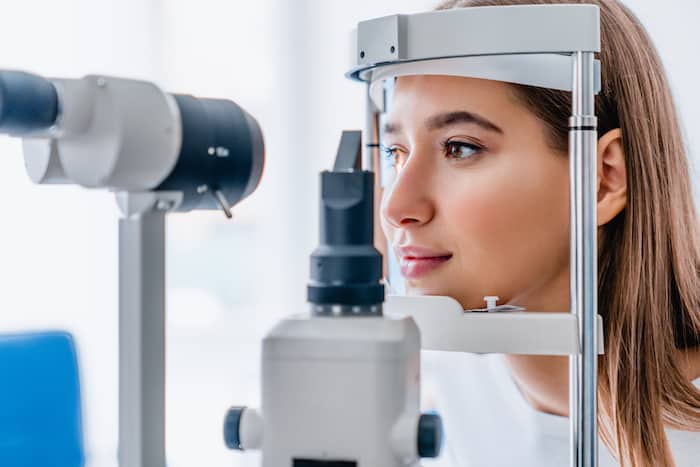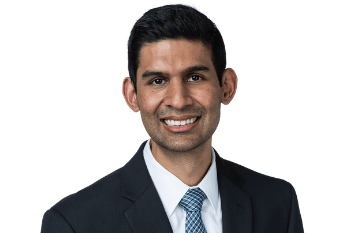Perception and connection: two crucial components of daily life that stem from our eyesight. Vision is arguably one of the most important human senses. Yet just like the act of breathing, it is often something that goes overlooked as we go through life. There are several best practices out there to incorporate into daily life to protect the value that comes from healthy eyes. In fact, leading specialists in the nation are working to increase education efforts surrounding the importance of eye health by providing information about disease prevention.
Research conducted by the Mayo Clinic shows that glaucoma is a leading cause of blindness for people over the age of 60 and more than half of those diagnosed do not know they have it. So why is it not discussed more? While we recognized Glaucoma Awareness Month every January, there is an ever-present need to continue the conversation year-round about a group of diseases that impacts over three million Americans annually.
What Is Glaucoma?
Glaucoma is a group of diseases that causes blindness due to pressure surrounding the optic nerve. Because the ability of your eyes to deliver visual messages to your brain is reliant on the health of the optic nerve, surrounding pressure can cause moderate to severe vision loss. As pressure begins to build up over time, the ability to see clearly slowly decreases. This pressure typically results from the inability of the eye to properly drain fluid through the trabecular meshwork, which is the drain of the eye.
While there is no cure for glaucoma, the more severe symptoms can be avoided if caught early. Since there are usually no symptoms associated with the initial stages of glaucoma, it can be tricky to diagnose until it is in the later stages of development. Fortunately, doctors like Dr. Ashish Singh at Kleiman Evangelista are taking the time to educate patients so they can better understand their risk for glaucoma and the preventative measures that can slow down its progress.
Most Impactful Ways to Reduce Your Risk of Glaucoma
Perhaps the most beneficial way to prevent vision loss from glaucoma is by taking advantage of annual eye exams. Through a dilation process, your doctor will be able to get a comprehensive look at your optic nerves and track their changes over time. Even if you have no symptoms of eye disease, it’s never too early to begin participating in yearly eye exams.
Pay close attention to factors that can put you at higher risk of glaucoma. Your chances increase if you’re 60 years of age or older. Moreover, a lot can be said about family history and genetics. Research suggests that those with a family history of glaucoma are not only more likely to develop the disease, but also a more aggressive form of it. It is important to keep in mind that there are many types of glaucoma, so determining the form that you are most susceptible to will help you and your physician determine the best course of treatment.
Glaucoma eye drops can be prescribed by your doctor to significantly reduce the chances of pressure build up. Even if you do not have severe symptoms, staying on top of using medicated eye drops can help maintain optic nerve health. In addition to that, it is essential to practice healthy behaviors in other aspects of your life. This includes regular physical exercise, maintaining a healthy weight and diet, keeping a close watch on your blood pressure, and more. These two elements coupled together can help postpone the progression of glaucoma.
Lastly, use eye protection. Not only should you be wearing sunglasses when outdoors but make sure to wear protective eyewear when using power tools or participating in sports. Eye protection will help prevent any more damage to the eye.
Knowing the vast impact of this disease is step one on your journey to prioritizing your eyesight health. Take the time to conduct research on physicians near you who are equipped to not only diagnose glaucoma, but also are prepared to help treat the group of diseases that impact so many Americans.

Ashish Singh, MD
Ashish Singh, MD, specializes in cataract and refractive surgery. As a board-certified surgeon, Dr. Singh performs laser-assisted cataract surgery, advanced technology intraocular lenses, and LASIK. He also specializes in glaucoma treatment using laser and minimally invasive glaucoma surgeries (MIGS). Dr. Singh joined the Kleiman Evangelista Eye Centers team in July 2019.








